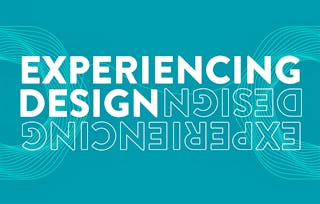Appreciative Inquiry is a collaborative and constructive inquiry process that searches for everything that gives life to organizations, communities, and larger human systems when they are most alive, effective, creative and healthy in their interconnected ecology of relationships. To appreciate, quite simply, means to value and to recognize that which has value—it is a way of knowing and valuing the best in life. In the language of Positive Organizational Scholarship it means a research focus—a positive bias—seeking fresh understanding of dynamics described by words like excellence, thriving, abundance, resilience, or exceptional and life-giving.

Leading Positive Change through Appreciative Inquiry

Leading Positive Change through Appreciative Inquiry
This course is part of Inspired Leadership Specialization

Instructor: Ronald Fry
20,374 already enrolled
Included with
307 reviews
Skills you'll gain
- Organizational Change
- Organizational Leadership
- Stakeholder Engagement
- Culture Transformation
- Organizational Development
- Empowerment
- Leadership Development
- Change Management
- Storytelling
- Initiative and Leadership
- Leadership
- Interviewing Skills
- Employee Engagement
- Business Transformation
- Case Studies
- Strategic Leadership
Details to know

Add to your LinkedIn profile
See how employees at top companies are mastering in-demand skills

Build your subject-matter expertise
- Learn new concepts from industry experts
- Gain a foundational understanding of a subject or tool
- Develop job-relevant skills with hands-on projects
- Earn a shareable career certificate

There are 6 modules in this course
Week One defines what Appreciative Inquiry (AI) is and frames it among the growing trend of “strength-based” approaches to human development and organization change. This strength-based perspective is viewed in contrast with deficit-based change which is reportedly successful less than 30% of the time. The unintended consequences of deficit or problem-based change approaches are discussed in contrast with the focus on using strengths to create shared positive images of future possibilities that underlies the AI theory and method.
What's included
5 videos2 readings1 assignment6 discussion prompts
Week Two underscores the “power of the positive question” and story-telling as effective ways to engage stakeholders in change efforts. Participants in the course are guided to conduct an “appreciative interview” in order to experience the impact of “best past” questions and sharing stories that evidence strengths in action. The fatefulness of the questions leaders ask is demonstrated as a foundational principle in AI.
What's included
4 videos1 reading2 assignments2 discussion prompts
Week Three introduces the AI change method in the form of the “4-D” Cycle. The Discovery, Dream, Design and Destiny phases are described and we see a video example of an appreciative leader reconnecting his organization with their core strengths. This is the outcome of the Discovery Phase and sets the foundation for having multiple stakeholders or team members “dream” or imagine new, positive possibilities for the future. The ability to begin change with a discovery of past strengths in action – or emphasizing stability-in-change - is discussed as a key skill of appreciative leaders.
What's included
5 videos1 reading1 assignment1 peer review1 discussion prompt
Week Four explores the foundational principles of AI and some of the supporting research and literature that demonstrate the power of positive questions, the relationship between positive future images and our actions, and the importance of positive emotions. These findings converge in a strong implication for leaders that they need to create work spaces that emphasize a 4:1 or greater imbalance of positive imagery over negative or deficit imagery in daily interactions and conversations. The link to the one of the core foundational principles that “words create worlds” is demonstrated.
What's included
4 videos2 readings1 assignment3 discussion prompts
Week Five discusses Topic Choice – or the reframing of problems into affirmative opportunities – as the starting point for AI interventions. A case study of a trucking company is presented, including video, to show how an organization moves from Topic Choice through the Ai 4-D Cycle to launch and sustain positive changes that lead to improved profitability and a transformed union-management culture.
What's included
5 videos1 reading1 peer review
Week Six integrates the concepts and ideas from prior weeks through another case study of safety improvement in a steel mill where the outcome from applying the AI approach was unexpected and reinforces a primary proposition in AI that “words create our worlds.” A summary of ideas for how leaders can begin to experiment with AI are summarized along with suggestions for “being” - not just “doing” – Ai in one’s daily life.
What's included
4 videos2 readings1 assignment1 peer review1 discussion prompt
Earn a career certificate
Add this credential to your LinkedIn profile, resume, or CV. Share it on social media and in your performance review.
Instructor

Offered by
Explore more from Leadership and Management

University of North Texas
 Status: Free Trial
Status: Free Trial Status: Free Trial
Status: Free TrialCase Western Reserve University
 Status: Free Trial
Status: Free TrialUniversity of Virginia
Why people choose Coursera for their career

Felipe M.

Jennifer J.

Larry W.

Chaitanya A.
Learner reviews
- 5 stars
82.41%
- 4 stars
15.30%
- 3 stars
2.28%
- 2 stars
0%
- 1 star
0%
Showing 3 of 307
Reviewed on Nov 6, 2018
Really enjoyed this course, it was a great learning opportunity and I look forward to continuing to put the things I learned into real world practice. The concepts taught have real po
Reviewed on Jul 4, 2022
Am inspired! Awesome sharing & informative resources to seed interest in this area. Benefitted lots ... am grateful :O)
Reviewed on Apr 6, 2018
Very Good Session, It help me a lot to get the change in myself and best is 4 D concept

Open new doors with Coursera Plus
Unlimited access to 10,000+ world-class courses, hands-on projects, and job-ready certificate programs - all included in your subscription
Advance your career with an online degree
Earn a degree from world-class universities - 100% online
Join over 3,400 global companies that choose Coursera for Business
Upskill your employees to excel in the digital economy
Frequently asked questions
To access the course materials, assignments and to earn a Certificate, you will need to purchase the Certificate experience when you enroll in a course. You can try a Free Trial instead, or apply for Financial Aid. The course may offer 'Full Course, No Certificate' instead. This option lets you see all course materials, submit required assessments, and get a final grade. This also means that you will not be able to purchase a Certificate experience.
When you enroll in the course, you get access to all of the courses in the Specialization, and you earn a certificate when you complete the work. Your electronic Certificate will be added to your Accomplishments page - from there, you can print your Certificate or add it to your LinkedIn profile.
Yes. In select learning programs, you can apply for financial aid or a scholarship if you can’t afford the enrollment fee. If fin aid or scholarship is available for your learning program selection, you’ll find a link to apply on the description page.
More questions
Financial aid available,
¹ Some assignments in this course are AI-graded. For these assignments, your data will be used in accordance with Coursera's Privacy Notice.

